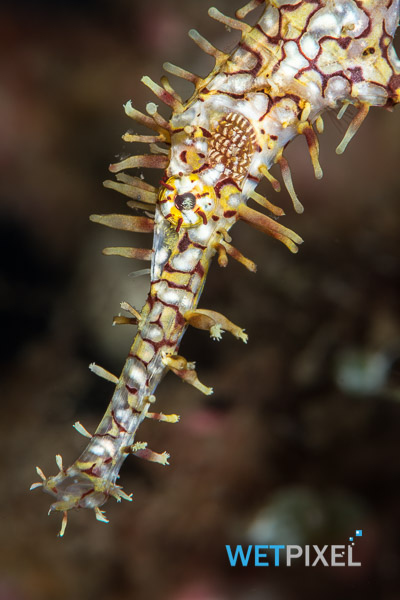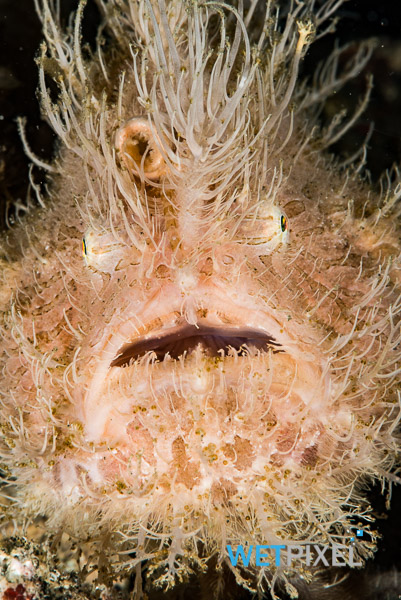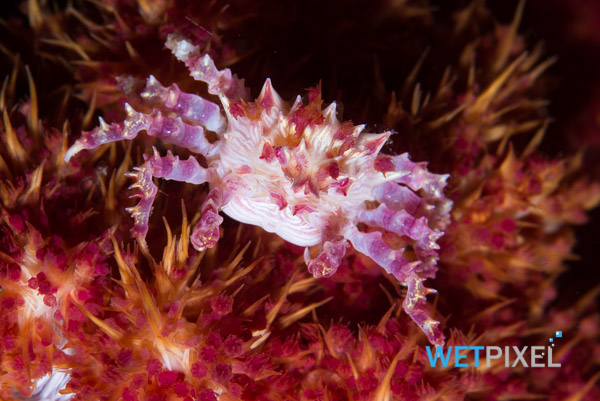Article: The value of muck dive critters

Article: The value of muck dive critters
By Maarten De Brauwer.
The coral triangle region in Southeast Asia is renowned for its marine biodiversity. The area is also home to millions of people, many of which depend on marine resources for sustenance and income. The human impacts on the marine environment are considerable: overfishing, habitat destruction, pollution, etc. have degraded reefs and now pose a threat not only to marine biodiversity, but also to the livelihoods of local communities.
Dive tourism has the potential to be a sustainable source of income for these coastal communities. While most recreational diving occurs over coral reefs, other types of diving are becoming increasingly popular. Muck diving does not rely on reefs, but instead occurs over sandy habitats. The focus of muck diving is on finding small, cryptic species such as frogfishes or ghost pipefishes that are rarely encountered on coral reefs. Many of the species important for muck diving also have a high value in the marine ornamental aquarium trade, but there has been little research into the human impacts on these species.

Currently, marine conservation efforts focus on coral reefs and charismatic species (turtles, dolphins, sharks, etc.). While these are very important, this approach ignores other ecosystems that are less known, but might still play an important role for coastal communities. Knowing the economic value of resources can be crucial to establish reasons for protecting marine biodiversity.
As divers and photographers, it might sound like a strange idea, assigning an economic value to the species we like to observe. Finding, watching and photographing amazing underwater life is an experience that is invaluable to many of us. It is more than just ticking boxes, it is an experience that takes us out of everyday life and inspires us. It is something to talk about and you want to share with fellow divers, friends and family. So putting dollar signs on that might seem like selling out, until we realise divers are not the only ones using the marine environment.
The protection of species or ecosystems frequently competes with other economic interests, such as palm oil plantations and fishing. While these are important sources of income, they can decrease the value and health of the natural environment. Determining the monetary value of dive tourism allows us to make comparisons with other industries and with different uses of marine resources. Case studies show that tourism can be a valuable, sustainable alternative to more destructive uses of the natural environment.
Shark diving in Palau has been estimated to be worth about US$ 18 million per year. Harvesting the Palauan shark population for fishing instead would be worth less than US$ 11,000. In the light of these numbers, it is clear why it was a good idea from the Palauan government to declare the waters around Palau as shark sanctuary.
In a similar fashion, diving and snorkelling with manta rays has been estimated to be worth around US$ 73 million per year globally. Shark diving in Moorea was valued to be worth US$ 5.4 million annually. The whale sharks in Ningaloo contribute an average of AUS$ 6 million to the local economy. When practiced in a sustainable manner, it is clear that dive tourism offers an alternative income for fishing communities, while simultaneously increasing awareness in those communities and the tourists diving in the region.

As part of a collaborative research project between Curtin University (Perth, Australia) and Hasanuddin University (Makassar, Indonesia), we are currently investigating the importance of muck dive tourism for local communities in Southeast Asia. The goal of this study is to stimulate conservation and research interest in the species that are important to muck divers, but are often poorly understood by science. As a first step, we have developed an online survey to investigate which species are most popular with muck divers.
If you would like to help out with this research, we invite you to take the survey, which was designed for divers with an interest in muck diving. Completing it should take no more than 5 minutes. Participation is entirely voluntary, your identity cannot be connected in any way to your survey answers, and you can opt out at any time.
If you have questions regarding the survey or the research, feel free to email Maarten De Brauwer.